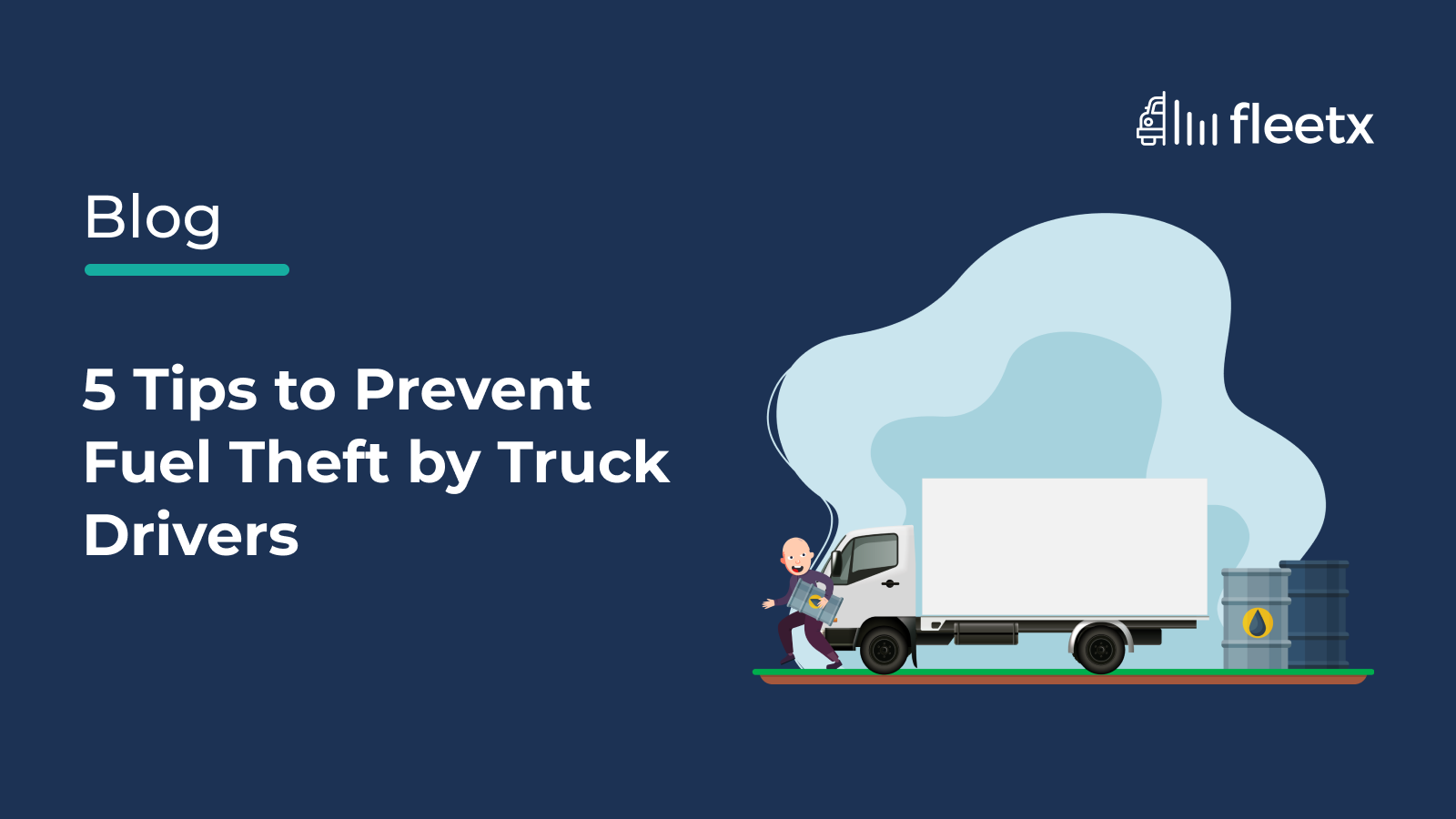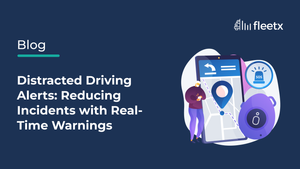
Are you examining answers to the query - how to calculate fuel consumption per km in Excel? Are you trying but failing to control the rising incidents of fuel theft by your fleet drivers? Well, you are part of a large group of transporters struggling with the same!
Ever-rising fuel prices account for much of the expenses logistics companies bear. Fuel thefts by drivers add to the cost burden. Reports indicate that approximately 8% of the diesel filled in trucks get stolen during transit. Commercial fleets are targeted more due to the higher capacity of fuel tanks and lack of preventive checks. Such actions not only cause financial loss but can damage the vehicle too.
Fleet managers have a hard time anticipating the newer techniques that can be used to steal fuel from the vehicle. Shifting from manual supervisory tactics and introducing technology is a foolproof way to provide actionable insights into what happens within and outside the vehicle, especially the fuel tank activities.
How to Recognize Instances of Fuel Theft?
It’s not always transparent for businesses to know how fuel theft is occurring. Several signs that raise suspicions about fuel being stolen include:
- Mysteriously high fuel expenses
- Physical tampering in the fuel tanks or cap locks
- Unusual fuel consumption levels
- Unauthorized vehicle route diversion, and more
How Does Fuel Theft Work?
It is important to understand the several techniques used to steal fuel from the trucks.
Direct Draining from the Vehicle
One of the most common ways of theft involves siphoning the fuel directly from the fuel tanks using a hose or any other device to drain fuel into containers. Such activities usually occur when the vehicle is in a non-operational state, during nighttime, or on holidays.
Fuel Bill Manipulation
Drivers often get into internal arrangements with the fuel station personnel to receive fabricated receipts that impact business record-keeping, leading to accounting inconsistency.
Fuel Adulteration
Several drivers resort to contaminating the fuel with low-grade substances such as kerosene or acetylene to lower the pure fuel levels and steal the differential amount. This becomes a serious threat to the vehicle engine and tank’s conditions.
Tampering Fuel Gauge or Odometer
Certain truck drivers alter or damage the vehicle’s fuel gauge settings to record higher levels of fuel consumption than the actual readings, making it convenient for them to steal the excess. Moreover, truck odometers are often manipulated to make it harder to record the total vehicle distance covered and the actual fuel consumption.
How Does Fuel Theft Impact Transport Businesses?
Fuel theft affects the business health through several means and is not limited to only the economic consequences. The avenues include:
Financial Effect
Incurring business loss is the primary disadvantage arising from truck fuel being stolen.
Operational Hurdles
Fuel theft leads to unexpected operations halt. Such hindrances lead to delays and vehicle downtime, defaming the company’s reputation and service standards.
Increasing Fleet Maintenance Charges
With the vehicle’s physical condition compromised, damages occur easily, leading to expensive repairs.
Risking Overall Vehicle Safety
The manipulation of vehicle parts, especially the fueling systems, poses a bigger risk – endangered safety. Drivers assigned other trips on the manipulated vehicle may be unaware of its actual deficiencies, risking the lives and cargo within it.
Harming the Environment
With the truck’s fuel system compromised, its pollution levels increase while operating. Also, the stolen fuel can be mishandled, causing spills and soil or water contamination.
How to Prevent Drivers from Stealing Fuel?
The leading ways of theft prevention include:
How to Monitor Fuel Consumption - Fuel Monitoring System
A fuel monitoring system based on artificial intelligence (AI) provides valuable real-time fuel insights covering:
- Timestamps of fuel fills or sharp falls
- Fuel transaction costs
- Real-time alerts for managers
- Detection of vehicle idling locations
The above data captured is utilized to analyze various vehicle-related parameters and take responsive actions.
Video-Telematics Enabled Dashcams
AI-powered multicamera vehicle dashcams have become popular tools enabling managers to supervise fleets. These can be installed around the fuel tank or vehicle surroundings to record video footage of any suspicious activity in the zone.
Driver monitoring systems detect any unusual in-cabin absence, during which time they may be involved in stealing and/or trading vehicle fuel. Choosing video telematics over regular dashcams assists in detecting possible thefts and taking relevant actions.
How Fuel Sensors Work
Investing in an advanced fuel sensor for the vehicle enables receiving real-time notifications of the fuel levels inside the tank and aids in easing fleet management for the managers. Any fluctuation, productive or unproductive, gets the attention of the manager instantly and assists in blocking any theft attempts.
Adequate Driver Training
Truck drivers should be given clear guidelines for refueling protocols. Proper guidance and training in the fuel monitoring system educate them on the SOPs of the mechanism, ensuring the truck’s and fuel tank's safety. Moreover, drivers should be trained in optimum night parking and fuel tank locking techniques.
Frequent Unannounced Audits
Conducting sudden audits assists managers in getting practical on-ground insights about the vehicle’s overall performance, including valuable fuel data. Such checks also keep the drivers alert.
How is Fleetx Making a Difference?
Prevention is always better than cure! With the assistance of a leading logistics automation company, such as Fleetx, transporters can proactively protect vehicle resources such as fuel. Several clients have been able to mitigate losses by ensuring the optimal usage of truck fuel through Fleetx solutions.
Having complete authority over the vehicle’s upkeep and routes offers insightful data and empowers fleet managers or operators to make decisions faster and cost-effectively. Learn more about the advanced technology offerings from Fleetx.






